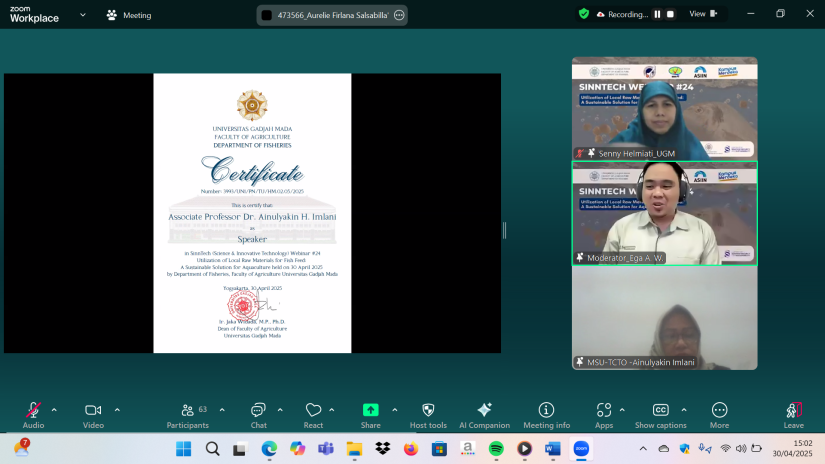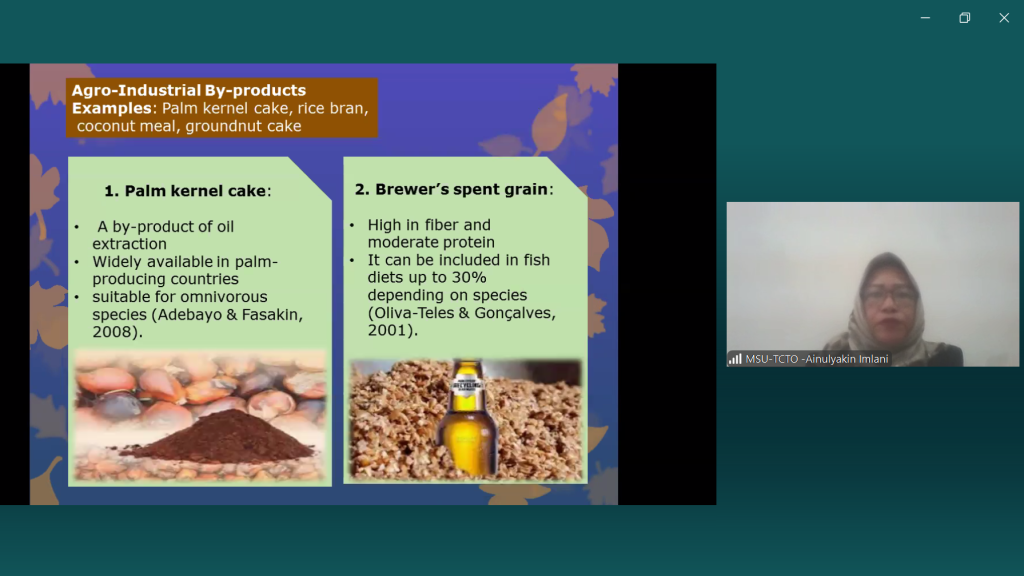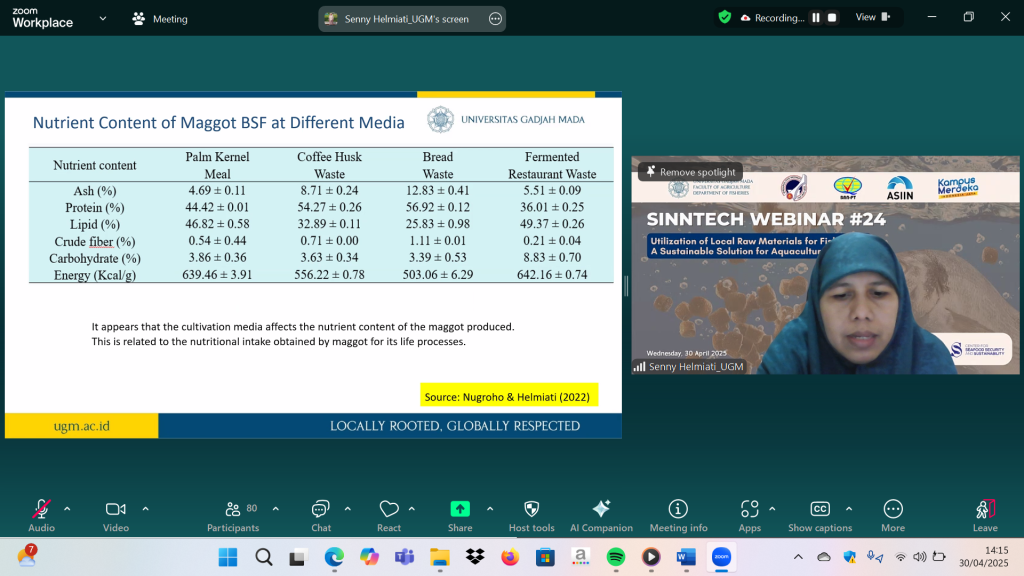
Yogyakarta, April 30, 2025 – A webinar titled “Utilization of Local Raw Materials for Fish Feed: A Sustainable Solution for Aquaculture” was successfully held as part of the SinnTech 24 event series. Attended by dozens of participants including academics and staff from various fisheries and marine institutions across Indonesia, this webinar served as a scientific forum to discuss efforts in utilizing local raw materials to support sustainability in the aquaculture feed industry.
The event featured two expert speakers who shared insights on innovative alternative feed ingredients for fish. The first speaker, Associate Professor Dr. Ainulyakin H. Imlani from Mindanao State University Tawi-Tawi College of Technology and Oceanography, presented a talk titled “Potential Alternative Indigenous Aquaculture Feed Stuffs.” Dr. Ainulyakin emphasized that the current reliance on conventional feed materials such as fishmeal and soybean meal is unsustainable due to their decreasing availability, caused by overfishing and land-use changes. He introduced a variety of local feed materials such as plants, insects, algae, and agro-industrial by-products—including palm kernel cake and brewer’s spent grain—which are considered to be both nutritious and cost-effective as fish feed components.

The second speaker, Dr. Senny Helmiati, S.Pi., M.Sc., from the Department of Fisheries, Faculty of Agriculture, Universitas Gadjah Mada, presented her research findings in a talk titled “Exploration of Local Ingredient for Aquafeed in Indonesia.” Dr. Senny highlighted the potential of insects and plants as alternative fish feed ingredients. She specifically discussed the Black Soldier Fly (BSF) larvae as a highly promising alternative protein source. Based on the data presented, various cultivation media—such as palm kernel meal, coffee waste, bread waste, and fermented waste—can yield maggots with diverse and high nutritional content, particularly in terms of protein, fat, and energy. This research shows that managing local organic waste can offer a dual benefit: reducing waste while producing high-quality feed ingredients.

The webinar topic aligns strongly with the global Sustainable Development Goals (SDGs), particularly: SDG 2: Zero Hunger, SDG 12: Responsible Consumption and Production, and SDG 14: Life Below Water. Utilizing local materials and organic waste for fish feed not only supports food security but also aids in preserving marine ecosystems and promotes responsible production and consumption practices. This webinar demonstrated that innovation based on local wisdom and renewable resources is key to building a more sustainable aquaculture system.
Author: Galuh Wulanuari
Editors: Dr. Mukti Aprian, S.Kel., M.Si (Han), and Nahla Alfiatunnisa, S.Pi.
